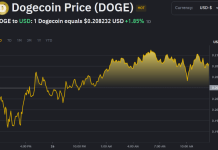The cryptocurrency market is booming in 2024, with record highs in value, trading volume, and user adoption. Despite some scepticism, businesses are increasingly entering the crypto space, offering new and improved services.
Choosing the right digital asset exchange software is crucial for businesses looking to offer crypto services or accept cryptocurrency payments. A good exchange platform should be feature-rich, operationally efficient, and technologically stable.
Exchange Landscape in 2024
Cryptocurrency exchanges, established in 2010, have become important financial institutions. Major players like Binance and Coinbase dominate the market, but smaller exchanges offer specialised services, lower fees, and unique trading pairs. By 2024, a diverse range of platforms act as hubs for analysis, investment strategies, and trading.
White-label platforms, readily available from companies like B2Broker, allow businesses to launch exchanges or brokerage services cost-effectively. These platforms provide a complete package of trading tools, features, and analytics.
Selecting the best exchange software requires careful consideration of features and costs to optimise efficiency and streamline processes. It’s also essential to choose a platform that aligns with regulatory requirements. This selection is critical for creating a secure and reliable trading environment.
Benefits of Cryptocurrency Exchanges
Let’s outline the reasons for Crypto Exchange’s usefulness:
- Decentralisation: Enhances user privacy by removing central control.
- Security: Digital exchanges prioritise security measures to protect user information and transactions. While decentralised, know-your-customer (KYC) and know-your-transaction (KYT) procedures are essential for efficient operations and security.
- Lower Fees: Compared to traditional finance, cryptocurrency exchanges typically have lower transaction fees due to less regulatory oversight.
- Faster Transactions: These platforms’ efficient natures enable faster transaction processing, which is ideal for the fast-paced world of blockchain trading.
- API Connectivity: API access allows for various business applications. Businesses can use this feature to interact with exchange order books, improving liquidity access and facilitating white-label exchange operations.
- Fiat Conversion: Exchanges streamline converting crypto to fiat currency, optimising financial operations for businesses accepting crypto payments.
Choosing the Right Software
A thorough evaluation of features is essential when selecting cryptocurrency exchange software. Here are some key factors to consider:
Cost Structure
Cryptocurrency exchange fees include base commissions, deposit/withdrawal fees, and gas fees. While they may seem small individually, they can add up. Larger, centralised exchanges often offer lower fees due to their economies of scale and aggregation of prices from multiple liquidity sources. Decentralised exchanges (DEXs) may have lower headline fees, but automated market-making can result in higher overall costs.
Exchange Models
There are three main types of digital asset exchanges: centralised, decentralised, and hybrid. Centralised exchanges offer greater efficiency and transaction security but come at the cost of reduced decentralisation. Decentralised exchanges prioritise core blockchain principles but can be less user-friendly and technically complex. Hybrid models combine elements of both, aiming for user-friendliness without sacrificing decentralisation.
Trading Tools and Features
Once you’ve chosen an exchange type, assess its trading features. Advanced options like margin trading, derivatives, and social trading can attract traders and boost revenue potential. Comprehensive platforms offer a wide range of trading tools and features beyond primary asset exchange.
Security and Support
Robust security measures such as firewalls, encryption, server monitoring, and two-factor authentication (2FA) are essential for safeguarding user data. Strong customer support is also crucial for smooth operations and timely resolution of technical issues.
Regulatory Compliance
Due to the volatile nature of the market, compliance with legal and regulatory requirements is paramount. Opting for software approved by regulatory bodies like the SEC or FinRA can provide a higher degree of security and reliability.
Conclusion
Exchange platforms are becoming increasingly vital for global cryptocurrency trading, investment, and payment processing. Choosing the right platform, whether for B2B payments or white-label services, can significantly impact your business. The expanding market makes selection challenging, necessitating thorough research and due diligence.
Considering the key factors outlined above will guide your initial investigation and help you evaluate the critical features and functionalities of various software options.
Disclaimer: This article contains sponsored marketing content. It is intended for promotional purposes and should not be considered as an endorsement or recommendation by our website. Readers are encouraged to conduct their own research and exercise their own judgment before making any decisions based on the information provided in this article.



































